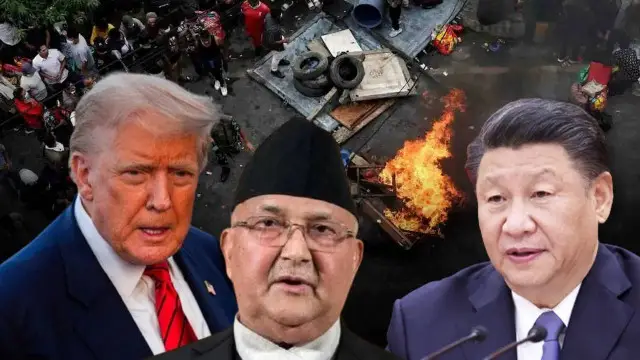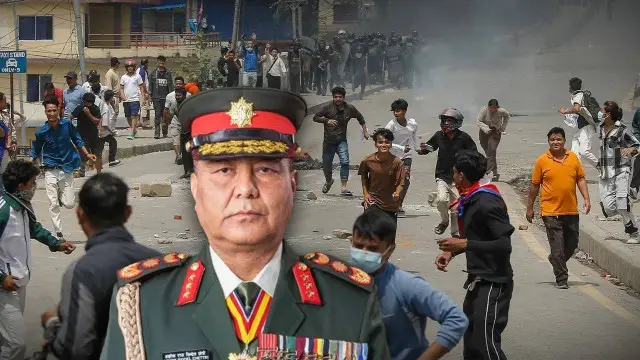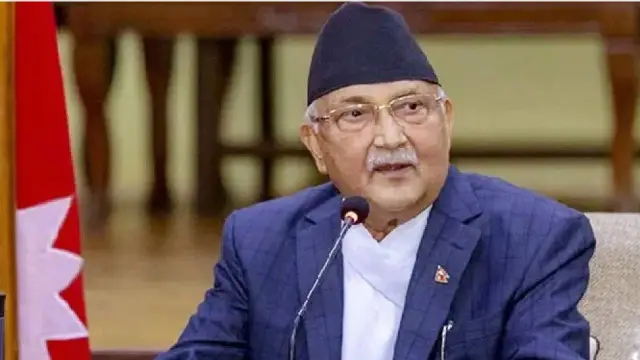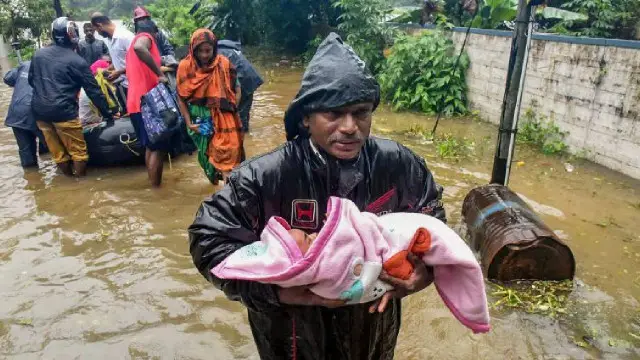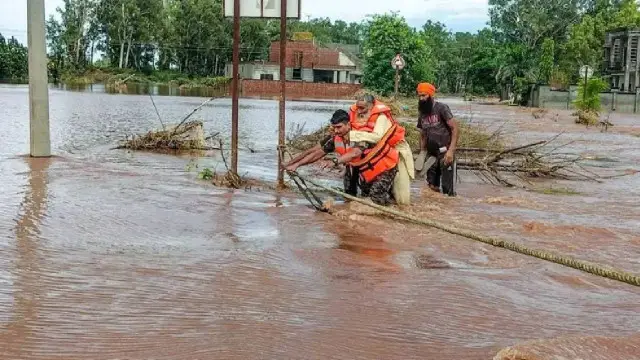Nepal faces catastrophic flooding, landslides, death toll reaches 200; Rescue operations continue
Nepal’s weather bureau recorded unprecedented rainfall levels, with 240 millimeters of rain measured at Kathmandu airport, marking the highest amount since 2002.

World News: Heavy rainfall over the weekend has triggered widespread flooding and landslides in Nepal, claiming the lives of 200 people, with rescue efforts intensifying as weather conditions improve. The country’s Home Ministry reported that 209 people have died across the nation, while 29 individuals remain missing. Rescue teams, including aerial support, have been deployed to bring those in danger to safety.
Rishi Ram Tiwari, a spokesperson for the Home Ministry, stated, "We intensified aerial rescue for people who are sick or still need to be brought to safety." Most casualties occurred in Kathmandu, where large parts of the city are submerged under water. A particularly deadly landslide near a blocked highway, just 16 kilometers from the capital, buried several vehicles, killing more than three dozen people as they slept nearby.
Highways blocked and emergency measures
All major highways leading out of Kathmandu have been blocked due to landslides, but emergency workers have managed to temporarily clear the Prithvi Highway, allowing some movement. In response to the devastation, the government has set up temporary shelters for displaced residents and announced financial assistance for the families of the deceased and injured. Prime Minister Khadga Prasad Oli, after returning from the United Nations General Assembly, held an emergency meeting to coordinate rescue and recovery efforts.
Record-breaking rainfall and climate change concerns
Nepal’s weather bureau recorded unprecedented rainfall levels, with 240 millimeters of rain measured at Kathmandu airport, marking the highest amount since 2002. Experts like Arun Bhakta Shrestha from ICIMOD have expressed concerns that climate change may be a factor in this abnormal rainfall pattern, which usually diminishes by the end of September. Shrestha also highlighted that unplanned urban development has exacerbated the disaster’s impact.




